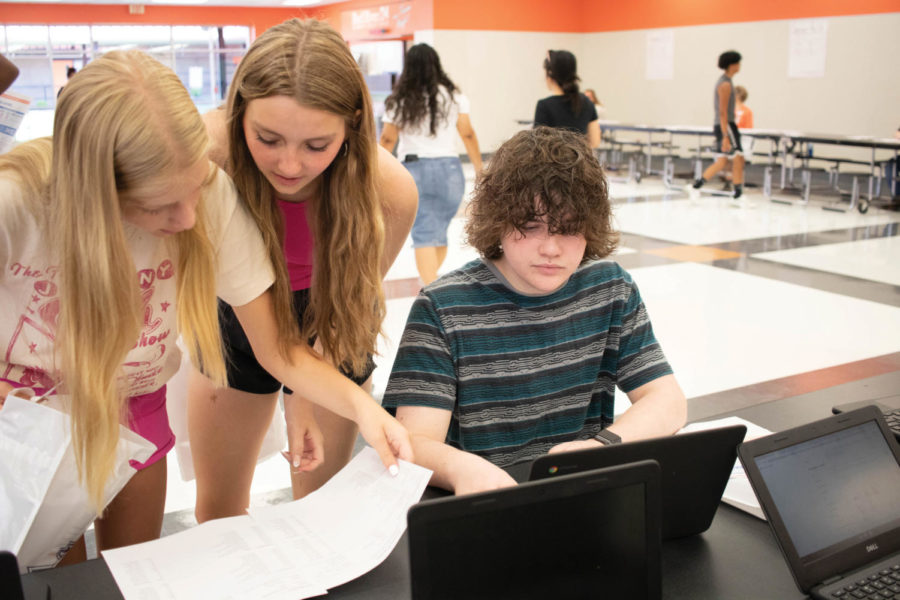Chromebook Controversy
School administrators and students share thoughts on the new chromebooks
Photo by Kelsey Head
Sophmore Peyton Tullos types on the new student issued chromebooks on schedule pick-up day.
September 26, 2022
The sounds of footsteps flood the library. Chattering voices float across the room in anticipation and curiosity as students pick up their schedules and IDs, but most importantly, their new chromebooks.
In August, due to new grant funding, each student was given a chromebook issued by the school in hopes of implementing a new and easier way of learning campus-wide.
“Most of our kids now are digital natives,” Principal Patti O’Bannon said. “They were basically born with some sort of computer or device in their hands, and so being able to make those connections with students and offer a more engaging classroom is something we’re aiming to do.”
Although it’s slightly different, the goal of the chromebooks is not to entirely change the material students learn day-to-day.
“The curriculum doesn’t change,” O’Bannon said. “The state dictates what the teachers must teach. However, it’s up to the teacher to decide what parts of the curriculum are more feasible to do electronically for their class. Obviously, there’s going to be things that we still need to do paper and pencil that just can’t be done on Google Classroom.”
For subjects such as math, that may just be the case.
“We have a lot of trouble with my math equations and Google. They don’t get along,” math teacher Rhonda Johnson said. “It’s very, very hard for students to answer my questions and learn using the technology because of the equation editor or the lack thereof.”
On the other hand, for subjects such as English and History, the implementation of technology may be more compatible with not only the curriculum, but according to the staff, also the students.
“Already students are online,” teacher Kara Wicks said. “Y’all are learning online, y’all’s lives are basically online, so I don’t really think it will feel like a big change for my students, or at least it hasn’t so far.”
As for the students, mixed opinions are circulating about this new technological implementation.
“We use chromebooks a lot for reading and quizzes, which makes a lot of tasks easier,” sophomore Madelynne Adams said. “But when it comes to having to bring a personal one to school every day and having to remember to charge it, that’s when it becomes harder.”
Although this version of digital learning is new, the concept of digital learning is something that the school has experienced before due to the effects of COVID-19.
“I think the pandemic really opened our eyes to having students as well as staff members prepared to be able to have online learning,” O’Bannon said. “And so I think that the chromebooks are a good professional development for our teachers and students to learn how to adapt to a more online learning environment.”
Ultimately, educators believe that the chromebooks will effect minor yet positive change to the learning process within classrooms.
“We’re not learning different ideas,” Wicks said. “We’re just expressing them in different ways.”
















